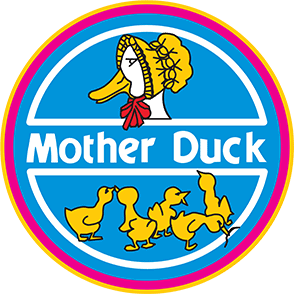
5 ways to raise kind, inclusive children
We’ve all seen that quote going around social media right? The one about not caring about academics and instead, raising children who sit with the lonely kid on the playground. It speaks very strongly to what many of us are trying to achieve when it comes to parenting. None of us wants to raise children who are unkind, put others down, or who are dismissive or cruel to others because they are different.
So while it’s certainly still ok to care about academics if that’s important to you, it’s also really important to many of us that we raise kind children. Children who feel good about themselves, and are comfortable in their own skin, but who also understand and accept that not everyone looks, speaks, thinks or experiences the world in the same way they do.

Inclusivity can be taught
I grew up in a very multicultural part of Australia. All my life, I was part of a community that included people from all walks of life. People who spoke differently, looked different to me, dressed differently, and had different religions, cultures, and beliefs to my own family. I don’t remember ever questioning those differences as a child – they were simply my reality and the reality of my community. I understood from a young age that everyone is different and that this is what makes the world go round.
However, a few years ago, I moved my family and my children to a different part of Australia, which is less diverse. I worried about how this would affect my children and their understanding of the world. I was concerned that they would come to see their own skin colour, language, beliefs, and abilities as the ‘norm’ and that this may impact their ability to be tolerant and accepting of others.
But here’s the thing that we sometimes forget. Children are very curious, open-minded and accepting. They do not come pre-programmed with any prejudice, stereotypes, or judgment. They learn (or don’t learn!) these things from the adults around them.
Which means it really is within our power as parents to raise compassionate, accepting, inclusive children. We simply need to be intentional about the way we approach it.
5 strategies for raising inclusive children
Here are five ways we can help our children be more inclusive and tolerant of those who are different to them:
1) Model inclusivity
Our children are always watching and learning from our actions, so it’s important to live out the values we want to instil in our children. You need to BE the person you hope your children become and ensure that your everyday actions are aligned with your beliefs and values.
This means being mindful of the way you treat, speak to, and speak about others. Be conscious of any judgments, criticisms or stereotypes that may slip into your language, and aim to treat everyone you meet with kindness and respect. Make an effort to include others and be mindful of people who might be feeling left out. Extend an invitation to the new family in town or say hello to that mum at school drop-off who is often standing alone. The more you do this, the more these things simply become the norm for your children, and the more likely they will be to follow suit.

2) Teach children empathy, compassion and kindness
Empathy is the ability to put yourself in another person’s shoes and understand the way they feel, even when their experience may be different from yours. Compassion is about channelling that empathy into helpful action and offering someone support and kindness in a difficult moment. And the good news is that both of these skills can be taught!
You can explicitly teach these skills by recognising and reflecting on the feelings of others and talking to your children about why they may feel this way. You can also coach children through difficult or new situations where an empathetic or compassionate response may be needed, offering them different responses to choose or giving them the language they need in the moment.
But again, the best way to teach empathy and compassion is by modeling it for your children. Offer a helping hand to a mum at the park with little ones. Hold the lift for the person behind you. Volunteer at a local charity. Respond with patience and understanding when others make mistakes. And finally, offer empathy and compassion to your children too. Children learn these skills best by being on the receiving end of them and knowing what they FEEL like.

3) Encourage questions and open discussion
Many of us shy away from conversations about things like race, religion, and physical differences because they make us uncomfortable. We shush our children when they ask questions or scold them for their inappropriate or rude questions. But the way you respond to the curiosity of your children can also send a powerful message about inclusivity and diversity. When you shut down questions and skirt around difficult conversations, you inadvertently send the message that these questions, and therefore these differences, are somehow wrong or shameful and shouldn’t be spoken about.
But research tells us that in fact these conversations can and should be had early and often. Children do not feel the discomfort we do when they speak about these topics. They are simply trying to learn. So encourage questions. Speak about differences without judgment. Give your child simple, honest, and matter-of-fact explanations, and use age-appropriate language that is ok for your child to also use. If they do use language that you are uncomfortable with or that is inappropriate, simply give them respectful alternatives to use and explain why the language is not ok. There is no need to scold them or shame them for their choice of words. This will only make them less likely to come to you with their questions next time.
4) Expose children to diversity
Take a look around at your family’s social circle. Is it diverse? Can you make an effort to expand it? How can you teach your children to appreciate the differences of those around them? Here are a few ideas to get you started:
- Attend different cultural celebrations or festivals in your area
- Travel to a range of different places
- Watch TV shows and movies that include characters from different countries, with different religions or different abilities
- Read books that include diverse characters
- Read books that explore and celebrate different countries and cultures
- Buy your child toys that represent different races, ethnicities, and abilities
You may, like my family, live in an area where many of the people in your community look and sound the same and have similar beliefs and customs. But that doesn’t mean your child can’t still experience diversity – it simply requires some intentional effort and an open mind.

5) Expect your children to make mistakes
Children are still learning what is and is not appropriate and don’t yet understand social norms and rules. They will make mistakes and say inappropriate things at times. It’s important for us to remember that they do not mean to offend others with their questions. They are simply curious and trying to understand their world. You can save yourself a lot of frustration by accepting that there are going to be embarrassing moments along the way – but the way you respond to them will make all the difference.
While you may wish the ground would open up and swallow you when your child says something embarrassing in public like, “Why is that man so fat mummy?”, the best approach is to simply apologise for any offense caused, explain that your child is still learning, and offer a simple, respectful answer like, “We all come in different shapes and sizes.” You can then give your child a more in-depth explanation at home if you feel it is necessary.

You may also like to prepare your child in advance if you are going into a social situation where you know your child will encounter people with differences that they are unfamiliar with. This gives them a chance to ask questions ahead of time and means their natural curiosity is less likely to upset others!
Sometimes, teaching children about diversity is tricky. But mostly, it’s not. Because children do not come into this world with any preconceived ideas or beliefs. All we really need to do is remain mindful of our own beliefs and stereotypes and sit with our own discomfort long enough to have honest and open conversations. It’s those conversations, combined with our own intentional, respectful actions, that ultimately help us raise accepting, kind, inclusive children that go out into the world and make it a better place.
Sarah Conway is a child and adolescent psychologist, mother of 4, and founder of Mindful Little Minds. She has over 15 years of experience working in mental health with children, teenagers, and families. Sarah’s mission is to help parents move away from punitive parenting strategies and towards mindful, intentional parenting that builds emotional intelligence in children and parents alike. As a busy mum herself, she knows firsthand how difficult mindful parenting can be, particularly when it was never modeled by our own parents. That’s why she provides parents and children with simple, practical strategies and tools that help them learn to manage emotions – together. She believes that changing the way we parent will change the world.


